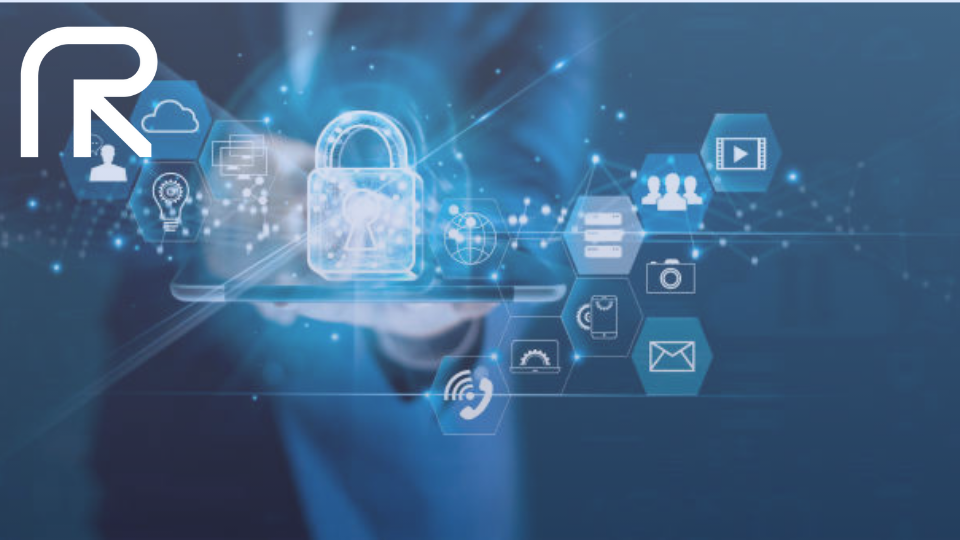LyGuide Series: The Importance of Data Privacy in the Age of AI
Feb 6, 2023 12:00:00 AM LyRise Team 4 min read

The Internet has been around for a long time. It's easy to take it for granted, but you can be sure that people are watching and tracking your activity online. It's not just advertisers who want to know what you're up to—companies hold a lot of data on us too, and there's nothing we can do about it. Not only are they collecting information through cookies, but they also use our personal information in ways we don't always realize. Data privacy is important because we have no control over where our data goes once it's online. We can make sure that we are doing everything that is possible to protect our personal information online by reading the Terms and Conditions before agreeing to them!
Companies hold a lot of data on us.
Many companies collect data on you, and they're not always upfront about it. In fact, many people are unaware of the information that is being collected on them. This can include everything from your name and address to your browsing history or social media posts. Companies use this information to improve their products and services; however, they can also use it predict our behavior so they can target us with ads based on our preferences (or lack thereof).
Additionally, some companies have been caught manipulating user data in order to influence elections or sway public opinion--but because we don't know exactly how much control we have over our own personal data once it's online (or who has access), these incidents may happen again without warning or transparency from those who hold power over this kind of power over others' lives
We're already being monitored in many ways.
Data is collected about us by companies that track our web browsing, mobile phone usage, and even the television shows we watch. This information can be used to target advertisements or provide other services based on our preferences and habits.
Data privacy is important because it gives people control over their personal information and helps them decide how it's used--or whether it should be shared at all. If you don't want advertisers targeting ads toward you based on your online activity or location history (and who does?), then you need robust data privacy laws in place so that companies must get permission from consumers before collecting this kind of information about them."
Data privacy is important because we have no control over where our data goes once it's online.
The second reason data privacy is important is because we have no control over where our data goes once it's online. Data can be stored on servers you don't control, and it can be stored in many different places. This makes it easy to lose track of your own information, as well as make sure that only the right people have access to your information.
Data that's been collected by companies like Facebook, Google and Amazon are vulnerable to theft or leakage--and if this happens without your knowledge or consent then you could find yourself in a lot of trouble! If someone steals your personal information from those sites then they may use this against you: for example if someone hacks into my email account then there's no way I'll know about it until something bad happens because most people don't check their emails every day (I'm guilty!). Likewise if someone breaks into one of these big tech companies like Facebook or Google then there might be some serious consequences for everyone using those services because hackers would have access not just specifically targeted accounts but potentially all accounts using them too! That said though there are ways around these issues such as two-factor authentication where users must provide an additional piece of information before being able to log into certain parts/services within their account(s). This means even if someone steals my password they won't necessarily get past this extra step required beforehand."
We can make sure that we are doing everything we can to protect our personal information online.
-
Use two-factor authentication.
-
Make sure your passwords are strong.
-
Use a password manager to organize and store all of your logins securely in one place, so that no one else can access them if their laptop gets stolen or hacked.
-
Make sure you have a firewall on your computer (the software will check for malware and block suspicious activity) as well as antivirus software installed on it at all times (this will scan for viruses). These measures will help protect against malicious hackers trying to access or steal information from your personal devices while they're online. They also help prevent phishing scams where scammers try tricking people into giving up sensitive information by pretending to be someone trustworthy like an official company representative or friend/family member in need of help right away; these kinds of attacks are becoming more common thanks again largely due how easy it is nowadays for hackers get hold over personal data thanks largely due how easy it is nowadays for hackers get hold over personal data thanks largely due how easy it is nowadays
Make sure you read the Terms and Conditions before agreeing to them!
You should also be sure to read the Terms and Conditions before agreeing to them. This will help you understand what your data is being used for, where it's being shared and if there are any other important details that might impact your privacy.
If you're uncomfortable with any of these things, don't sign up!
Conclusion
Data privacy is a serious issue, and the more we know about it, the better. The internet has revolutionized our lives in many ways, but it has also created a lot of challenges when it comes to protecting our data privacy. In this article, we discussed some of these challenges as well as what you can do about them.